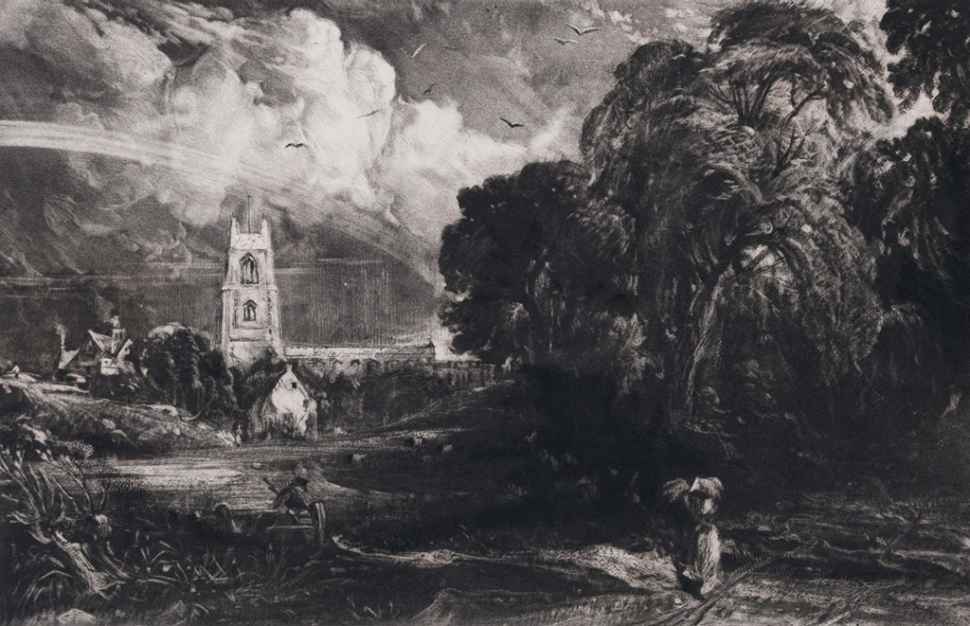
COLLECTIONS
European Prints
David Lucas (1802-1881) English, after John Constable (1776-1837) English, Stoke-by-Neyland from English Landscape: Various Subjects of Landscape, Characteristic of English Scenery, (detail), published 1830, mezzotint, 14 x 22 cm (image), Flinders University Museum of Art 1211, Photograph Adam Murakami
The European Print Collection was established in 1966 by Robert Smith, then senior Lecturer in Fine Arts, initially as Study Collection to complement the courses in Fine Arts offered at the University.
European prints between the 15th and 20th centuries were collected, with the earliest work being a page from the Nuremberg Chronicle from 1493. The prints were acquired to represent artists of contrasting periods, stylistic developments and modes of production as well as providing a historical context of printmaking.
The collection illustrates a continuous history of European art that covers periods from the Renaissance through to Modernism, with artists including Albrecht Dürer, Rembrandt van Rijn, William Hogarth, Francisco de Goya, Honoré Daumier, Käthe Kollwitz, John Constable, JMW Turner, Marc Chagall and Pablo Picasso.
Online Collections Catalogue
Access to our Collections is currently limited to Flinders students, staff and affiliated researchers.
The catalogue is designed to work with the following browsers:
Google Chrome; Firefox 10+ and Safari 6.0+
Please also note the FUMA Online Collections Catalogue is only accessible when you are connected to the Flinders University network. Click here for further information.
For further information, contact us at museum@flinders.edu.au.
Flinders University Museum of Art
Flinders University I Sturt Road I Bedford Park SA 5042
Located ground floor Social Sciences North building, Humanities Road adjacent carpark 5
Telephone | +61 (08) 8201 2695
Email | museum@flinders.edu.au
Monday to Friday | 10am - 5pm or by appointment
Thursdays | Until 7pm
Closed weekends and public holidays
FREE ENTRY
Flinders University Museum of Art is wheelchair accessible, please contact us for further information.


